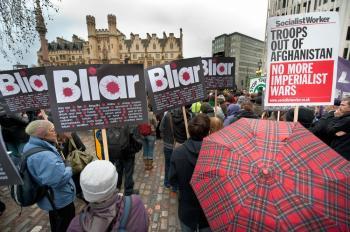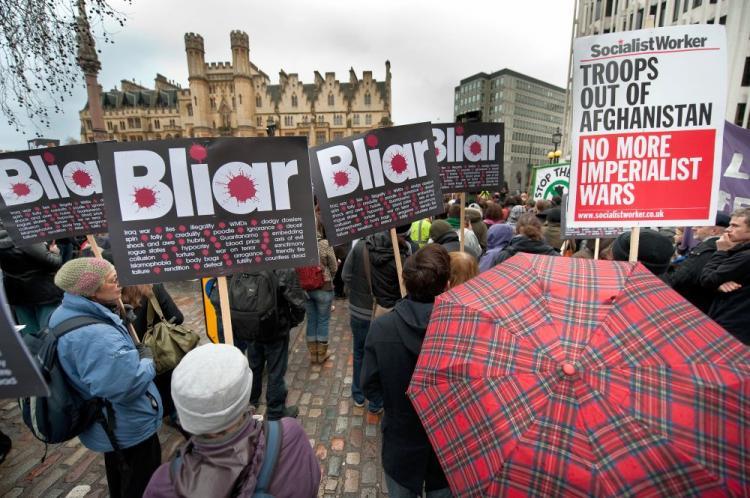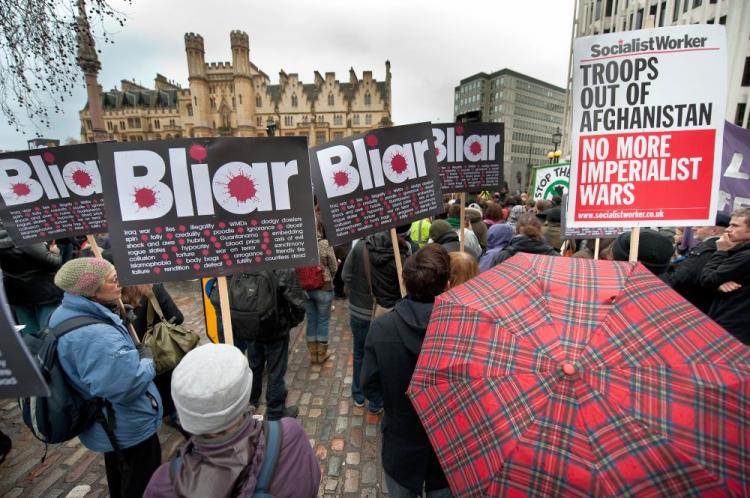I'd Do it Again, Blair Tells Iraq Inquiry
Tony Blair looked the most scared he had seen him in 16 years, said the BBC’s political editor.

Protesters in front of the Queen Elizabeth Conference Center on Jan. 29, in London, England. Tony Blair, Britain's prime minister from May 1997 to June 2007, faced questions on the invasion of Iraq from Chairman of the Inquiry Sir John Chilcot. This is the United Kingdom's fourth inquiry into the Iraq war. When asked if he had any regrets, Mr. Blair responded, 'No.' Marco Secchi/Getty Images

Simon Veazey
Freelance Reporter
|Updated:





